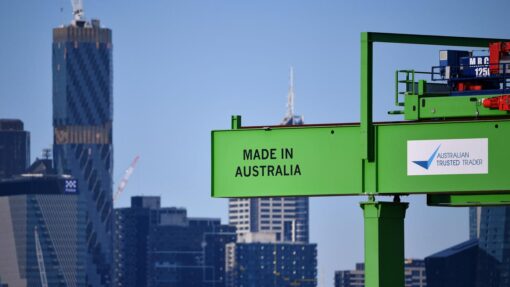‘Better deal’ for suppliers as supermarkets face fines
Tess Ikonomou and Poppy Johnston |

Supermarket giants could be slapped with fines of up to $10 million for breaching a mandatory code of conduct.
The code, which governs the relationship between supermarkets and suppliers, is voluntary but will become mandatory from April 2025.
The structure of the code will remain unchanged.
The government’s proposal involves maximum fines of $10 million, or three times the benefit gained from the breach, or 10 per cent of turnover in the previous 12 months.
The Australian Competition and Consumer Commission would be given extra powers to issue infringement notices to supermarkets that breach the code.

Suppliers experienced an imbalance between them and supermarkets but the risk of retaliation made it impossible to address, Competition Minister Andrew Leigh said.
“Through our reforms, we’re ensuring that suppliers to supermarkets get a better deal and that consumers from supermarkets get a better deal,” he said when introducing the legislation to parliament on Wednesday.
Dr Leigh said Australia had one of the most concentrated grocery sectors in the OECD.
“It is important that we have reforms in place that deal with the potential of those large supermarkets to throw their weight around,” he said.
The opposition has not officially taken a stand on the code of conduct, but deputy opposition leader Sussan Ley says the timing is questionable.
“Of course, we believe we need to be tough on supermarkets where they do the wrong thing,” she told Sky News.
“But people are already doing their Christmas shopping … why is this suddenly turning up now?”

The opposition has proposed its own policy to combat rising costs at the checkout – last-resort divestiture powers to break up supermarkets if found to be repeatedly price-gouging consumers.
As well as the mandatory code of conduct, federal Labor has targeted the practice of “shrinkflation”.
This refers to products sold for the same price though the size has been reduced.
Coles and Woolworths make up almost 70 per cent of supermarket retail sales.
The two chains have previously said they remained committed to keeping prices low and pack and serving sizes were up to individual manufacturers.
Australia’s consumer watchdog announced in September it was taking legal action against Coles and Woolworths for allegedly misleading customers over discount promotions.
AAP


